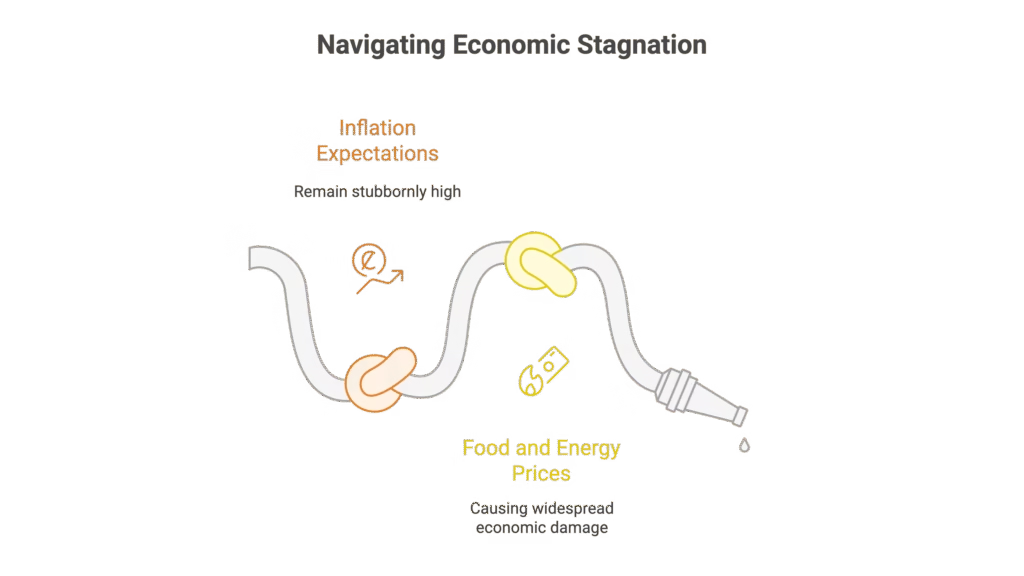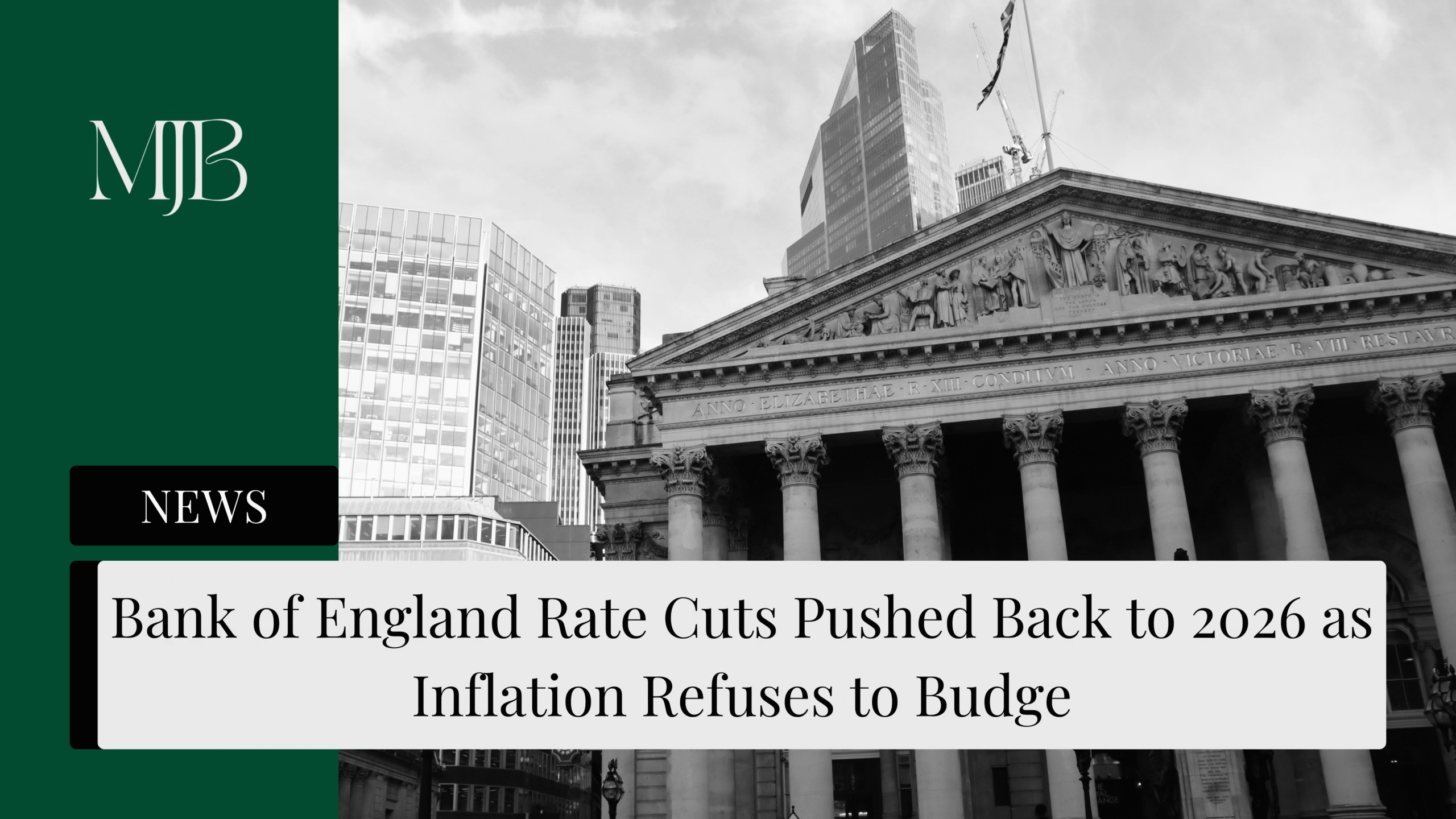The Bank of England’s next interest rate cut might not happen until 2026, according to some pretty bearish forecasters. With inflation playing hard to get and the UK stuck between high prices and sluggish growth, the BoE’s looking more like a patient parent than a generous gift-giver.
Here’s what you need to know about where interest rates are heading – and why your mortgage might stay expensive for longer than expected.
Why the Bank of England Is Hitting the Brakes on Rate Cuts
The Bank of England meets next week, right after we get August’s inflation data. Spoiler alert: nobody expects them to cut rates from the current 4%.
Most analysts are betting on holds through November and December too. It’s like watching paint dry, but with more economic consequences.
Here’s the thing – inflation’s being stubborn. The BoE wants it at 2%, but it’s camping out at 3.8% and showing zero signs of moving. Some forecasts even predict it’ll spike to 4% in September thanks to food prices and energy costs doing their usual wallet-crushing dance.
The Hawks Are Circling (And They’re Making Sense)
City economists are split faster than a dinner bill between friends. Pantheon Macroeconomics has been calling for rates to stay at 4% for a while now – and they’re starting to look pretty smart.
HSBC thinks the next four meetings will be snoozefests (rate-wise), while Deutsche Bank pushed their cut prediction from November to December. Even the optimists at Capital Economics, who still see rates hitting 3%, admit they might be wrong if the MPC votes get more hawkish.
RSM economist Thomas Pugh expects a 7-2 vote split favoring a hold. Translation? The Bank’s not feeling generous.

What’s Really Driving These Decisions
The BoE’s caught between a rock and a hard place. Recent data shows:
- Zero economic growth in July (thanks, ONS, for that cheerful update)
- Inflation expectations refusing to cooperate
- Food and energy prices still wreaking havoc
EY ITEM Club’s Matt Swannell puts it bluntly: most MPC members are losing confidence that inflation’s actually falling. When central bankers lose confidence, they usually err on the side of “let’s wait and see.”
Chancellor Rachel Reeves’ upcoming Budget adds another wildcard. Nobody knows how her spending plans might affect prices, so the Bank’s playing it safe

The 2026 Timeline: Why So Long?
If you’re wondering why 2026 keeps popping up, here’s the deal:
The Bank’s been cutting rates every other meeting since August 2024, but they’re taking baby steps. Their guidance screams “gradual and careful” – central bank speak for “don’t hold your breath.”
With inflation potentially hitting 4% and growth flatlining, the BoE needs to see consistent progress before they’ll risk loosening policy. That could take way longer than anyone initially hoped.
Bottom Line
Interest rate cuts aren’t dead – they’re just hibernating until inflation gets its act together. The Bank of England’s priority is crushing price growth, even if it means keeping borrowing costs high for longer.
For now, expect more of the same: cautious central bankers, stubborn inflation, and rate cuts that feel about as likely as finding a decent mortgage deal in 2025.
Want to stay ahead of BoE decisions? Keep an eye on inflation data releases and MPC meeting minutes – they’re your best crystal ball for predicting rate moves.
FAQ: Bank of England Interest Rates
Q1: When will the Bank of England cut interest rates next?
A: Most economists don’t expect cuts until 2026, with some predicting December 2025 at the earliest. The BoE’s prioritising inflation control over rate cuts right now.
Q2: Why is the Bank of England keeping rates so high?
A: Inflation’s sitting at 3.8% when the BoE wants 2%. High food and energy prices, plus weak economic growth, are making policymakers extra cautious about cutting too soon.
Q3: How does this affect my mortgage?
A: Higher rates for longer mean mortgage costs stay elevated. If you’re on a variable rate or coming up for renewal, budget for rates staying around current levels through 2025.
Q4: What could change the Bank’s mind about rate cuts?
A: Consistent drops in inflation data, clearer economic growth patterns, or major changes from the Chancellor’s Budget could shift their timeline. They’re watching the data closely.
Q5: Are other countries cutting rates faster than the UK?
A: It varies, but many central banks globally are taking similarly cautious approaches. The UK’s specific inflation challenges are making the BoE particularly hesitant compared to some peers.
DISCLAIMER
Effective Date: 15th July 2025
The information provided on this website is for informational and educational purposes only and reflects the personal opinions of the author(s). It is not intended as financial, investment, tax, or legal advice.
We are not certified financial advisers. None of the content on this website constitutes a recommendation to buy, sell, or hold any financial product, asset, or service. You should not rely on any information provided here to make financial decisions.
We strongly recommend that you:
- Conduct your own research and due diligence
- Consult with a qualified financial adviser or professional before making any investment or financial decisions
While we strive to ensure that all information is accurate and up to date, we make no guarantees about the completeness, reliability, or suitability of any content on this site.
By using this website, you acknowledge and agree that we are not responsible for any financial loss, damage, or decisions made based on the content presented.






